Schedule at a Glance
7:30am -2:00 pm
Summit Registration
Max Bell Building Foyer
8:30am- 12:30 pm
Truth and Right Relations Workshop
Max Bell Building, Room 252
1:45-4:30pm
Indigenous Tourism Panel Discussion
Max Bell Auditorium
4:00pm- 7:00pm
Summit Registration
Kinnear Centre First Floor Galleria
Truth and Right Relations Workshop
8:30am- 12:30 pm
Max Bell Building, Room 252
This workshop is designed for participants to better understand the truth of Canada’s shared history with Indigenous peoples and explore how to move towards right relations. This includes fostering a dialogue between Indigenous and non-Indigenous Canadians, and asking each of us to enter into a respectful relationship with one another as we work toward shared purposes.
Through Purposeful Travel we can engage in experiences which uplift the spirit and story of place, renew our relations, and energize pathways of truth and reconciliation.
Truth and Right Relations Workshop Faculty
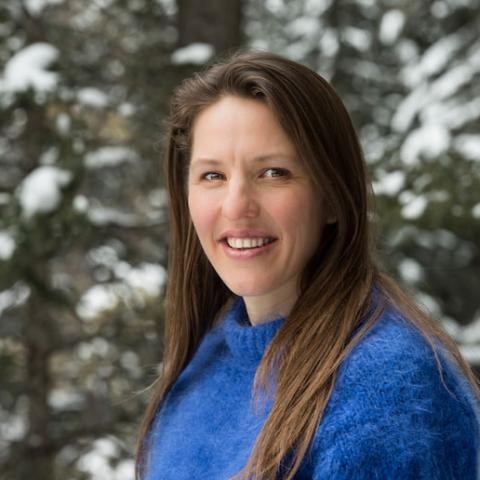

Erin Dixon
Truth and Right Relations Workshop Faculty
Erin (Gizhagatte, Ashati Sakahikan) belongs to the crystalline waters of Benessai Ochininissing, Skeleton Lake in the traditional lands of the Three Fires of the Anishinabek - Ojibway, Potawatomi and Odawa Peoples in Ontario, Canada. Erin walks with vision, and all of life as mind, bridging worlds and reweaving pathways towards what is possible and the essence of what is being called to life. She is woven through Reconciliation Canada as the Director of Knowledge and Indigenous Leadership in fields of collective transformation; lead faculty for Indigenous Leadership at the Banff Centre [Wise Practices for Indigneous Leaders and Truth and Reconciliation through Right Relations]; assistant professor in the Global Leadership MA at Royal Roads University, convenor of Indigneous Leadership within the International Leadership Association, firekeeper for the World Ethic Forum. Erin is involved with many efforts of planetary health from Skeleton Lake, to the artistry of community weaving with the Together Insitute, and life promotion through Feather Carriers Leadership for Life Promotion and the Canadian Association of Suicide Prevention. Erin identifies as otipêmisiwak, Cree-Michif and Icelandic-English and works collectively as one with nations across Akiikwe, Mother Earth. She carries many different experiences in her life bundle, including a MA Global Leadership, post-graduate certification in Ecopyschology, Getting to Maybe Systems Change Residency and Wolf Willow Positive Deviants Fellow in our everlasting circles of collective wisdom.
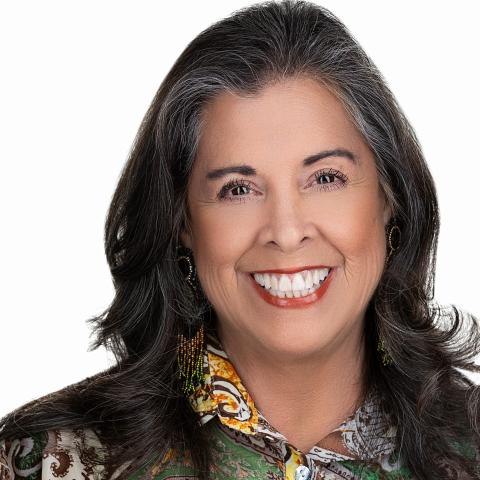

Dr. Cynthia Wesley- Esquimaux
Truth and Right Relations Workshop Faculty
Dr. Cynthia Wesley-Esquimaux served as Vice Provost for Indigenous Initiatives at Lakehead University for three years. Effective September 2016 she was appointed the 1st Indigenous Chair for Truth and Reconciliation in Canada for Lakehead University and continues to develop pathways forward to reconciliation across Canada.
Cynthia was inducted as a “Honourary Witness” by the Truth and Reconciliation Commission of Canada in 2014, and is Chair of the Governing Circle for the National Centre for Truth and Reconciliation at the University of Manitoba.
She is a member and resident of the Chippewa of Georgina Island First Nation in Ontario and has dedicated her life to building bridges of understanding. She sees endless merit in bringing people from diverse cultures, ages, and backgrounds together to engage in practical dialogue and applied research initiatives.
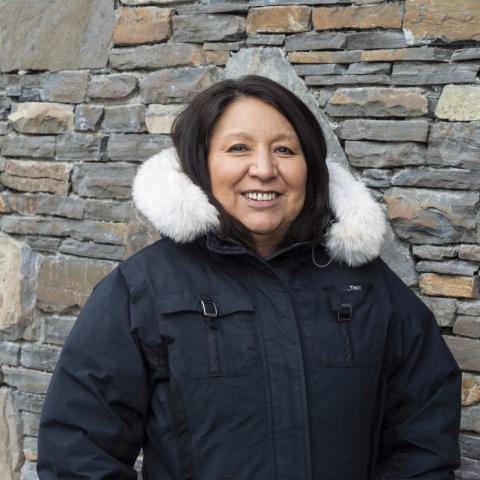

Elder Alice Kaquitts
Truth and Right Relations Workshop Faculty
Alice Kaquitts is a proud member of the Stoney Nakoda Wesley First Nation. Alice is a respected elder and community leader in the Stoney Nakoda nation and is the daughter of Alice Kaquitts Sr. and Thomas Simeon, and great-granddaughter of renowned Chief Hector Crawler.
Alice grew up in a traditional way of life where Nakoda language, culture and protocols were taught and followed. Alice’s formal education includes a diploma from Mount Royal College and a Bachelor of Social Work from the University of Calgary. Alice has been working within the Stoney Nakoda Nation in senior level positions for over 20 years.
Alice is a healthy, proud grandmother to 5 beautiful grandchildren and mother to two adult sons, and enjoys passing on her traditional knowledge and teachings to the future generations.
Indigenous Tourism Panel Discussion
1:45-4:30pm
Max Bell Auditorium
Interest in indigenous tourism is growing rapidly in Canada and abroad. How much do you know about Indigenous tourism?
Learn more about what is and what is not indigenous tourism, what role it occupies in indigenous culture and, what constitutes commodification. Discover how you can support indigenous tourism.
Join us for a panel discussion with industry experts and practitioners who will share their expertise and experience in this growing field.
Mackenzie Brown
Topic: Starting grassroots tourism in your community.
Brenda Holder
Topic: Tourism is the New Buffalo
David Pinel
Topic: Renewal through Indigenous Tourism Collaboration
Simon Ross
Topic: Banff Centre Right Relations and development of Indigenous Tourism Leadership programming
Indigenous Tourism Panelists
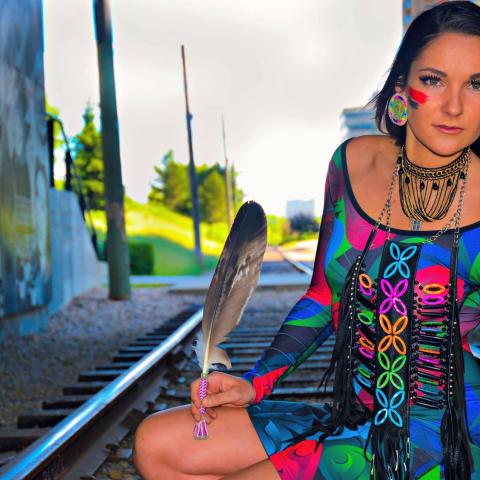

Mackenzie Brown
Indigenous Panel Discussion Speaker
Mackenzie is a First Nations Cree woman from the Sturgeon Lake Cree Nation, currently residing in Calgary, Mohkinstsis. She is a performer, drummer, tourism entrepreneur, philanthropist, and advocate for at-risk youth in the Edmonton area.
Mackenzie and her mother perform as “Warrior Women.” They drum and teach around Alberta and facilitate culturally appropriate educational performances as well as Indigenous creative workshops and programs. Along with drumming, Mackenzie is also an avid acrylic artist and traditional First Nations crafts artisan. Her art has been featured in the Pump House Gallery, Arts Commons Calgary, the Edson Gallery Museum, and the Gray Gallery of MacEwan University. Her work has been recognized for the Alberta Indian Arts and Crafts Award of 2017, featured at the 2017 Alberta Business Competition, and sold to people travelling worldwide at Jasper Park Lodge. She is the recent recipient of the 2022 Alumni Award for Grant MacEwan University, 2019 Esquao Award for Children’s Future from the Institute for the Advancement of Aboriginal Women and the 2019 Jaime Carriere Iskwew of the Year Award. Makenzie is the Director of Industry Development at Indigenous Tourism Alberta ensuring effective outreach, communication, and relationship-building with Indigenous communities.
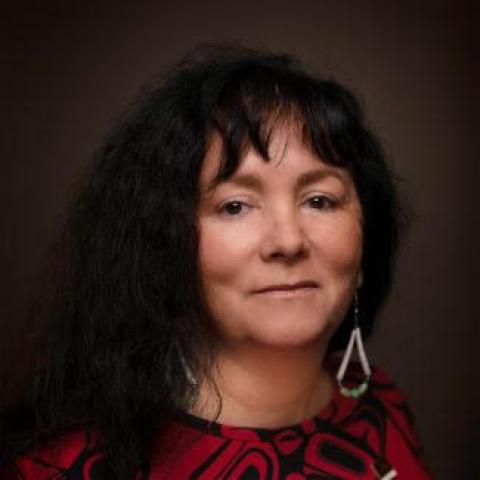

Brenda Holder
Indigenous Panel Discussion Speaker
Brenda was born and raised in the Rockies in Jasper National Park and has spent a vast amount of time trekking from valley to valley. She is pleased to follow her lineage as a traditional Métis guide from the Kwarakwante of Jasper.
Brenda is a Professional Interpretive guide and is an active advocate of Indigenous Tourism. She is a board member for the Interpretive Guides Association and represents Aboriginal Interpretive Guides. She is the Chair for the Indigenous Tourism Association of Canada and is the Alberta Director.
Brenda has been the recipient of several prestigious awards for her work in using her company both in the entrepreneurial spirit and in educating the public about Métis culture. One of these awards was the Aboriginal Woman Entrepreneur Award of Distinction presented from the Alberta Chamber of Commerce. She was awarded the Esquao Award from the Institute for the Advancement of Aboriginal Women (IAAW). In 2004, Métis Nation of Alberta Region III awarded her the Métis Entrepreneur of the Year.
Brenda took part in several film documentaries and one television series: her company, Mahikan Trails, was presented on Profiles of Success on Aboriginal People’s Television Network. In addition, the Indigenous Tourism Association of Canada released a video series called “The Power of Aboriginal Tourism” featuring Mahikan Trails and her sister’s company Painted Warriors.
Brenda is most often found guiding clients into the high alpine zones of the Rockies, running Traditional Camps or conducting team building programs down in the valley bottoms. Brenda is also the chair on the board of Indigenous Tourism Alberta. She continues to lead the direction of the organization today.
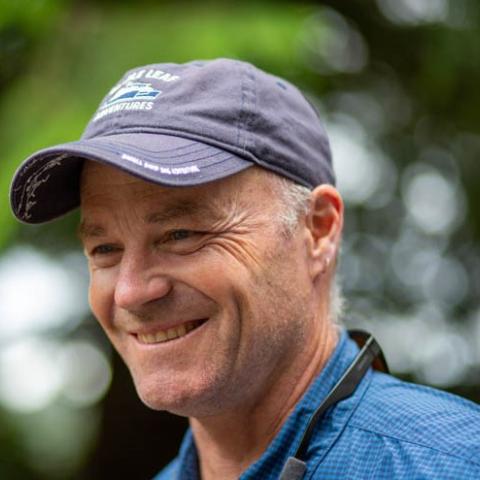

David Pinel
Indigenous Panel Discussion Speaker
David has been at the helm of North Island College’s Adventure Guiding and Indigenous Ecotourism programs on Vancouver Island since 2002. Through this, he has worked closely with students and knowledge keepers from over 30 coastal First Nations.
He is the past owner and now consulting Co-Manager of West Coast Expeditions, for the local Ka:’yu:’k’t’h’ / Che:k:tles7et’h’ First Nations (KCFN). WCE provides a nationally recognized Canadian Signature Experience and was Canada's first kayak tour company to achieve the Sustainable Tourism Gold Award. Through his leadership and this ownership transition, WCE recently became accredited with The Original Original mark from the Indigenous Tourism Association of Canada (ITAC) as part of an exciting and important path ahead for the KCFN and sector.
With more than 35 years of experience guiding, instructing and educating in coastal BC, David is committed to developing well-rounded skills and knowledge in adventure and ecotourism leaders, including a passion for working with Indigenous ecotourism education, partnerships, and community capacity building. David’s applied research and consulting outreach has been focused on community-based tourism planning and regional economic development that prioritizes cultural and ecological stewardship for health and well-being.
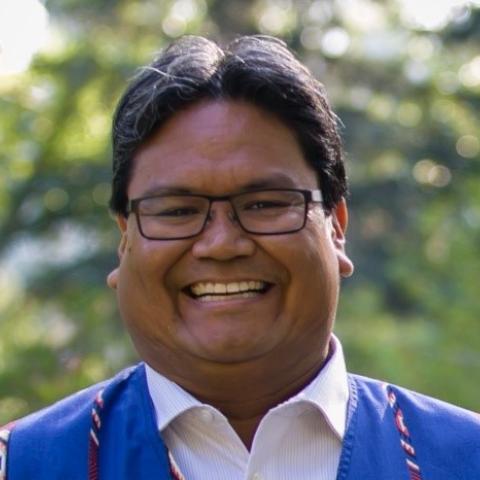

Simon Ross
Indigenous Panel Discussion Speaker
Mr. Ross is a hereditary member of the Nlaka'pamux Nation in British Columbia. He has more than twenty years of successful experience in the areas of post-secondary education, healthcare, the non-profit sector and working with and for multiple Indigenous communities and organizations. Simon has multidisciplinary interests ranging from community health, career development, leadership training, adventure tourism, and environmental land-based education. He is Director of Indigenous Leadership at Banff Centre for Arts and Creativity.
Throughout his career, Simon has stood at the forefront of developing meaningful connections and has built a reputation as a catalyst in championing the empowerment of individuals and communities.
Working with the Ktunaxa First Nation on their social governance initiative, Simon provided support and guidance to leadership based on research and evaluation of the Indian Act and British Columbia legislation to support their community development of strong, healthy individuals, families, and communities. This research and experience ignited Simon’s passion to explore Indigenous leadership in greater breadth.
As a senior health program advisor in his previous role at Alberta Health Services, he partnered with healthcare providers to better understand the diverse needs of First Nation communities in planning quality programs and services. In the areas of education and career development, Simon worked as a liaison between Indigenous workers and future employers and initiated culturally based Indigenous and non-Indigenous skills and leadership training programs. He has provided operational leadership in funding, program advancement, strategic planning, board governance, and community and governmental relations. He is currently the Director of the Indigenous Leadership at Banff Centre.